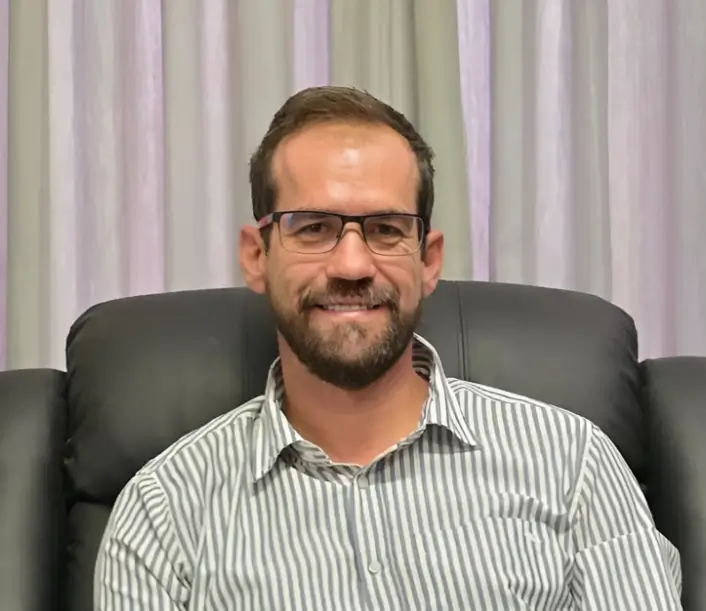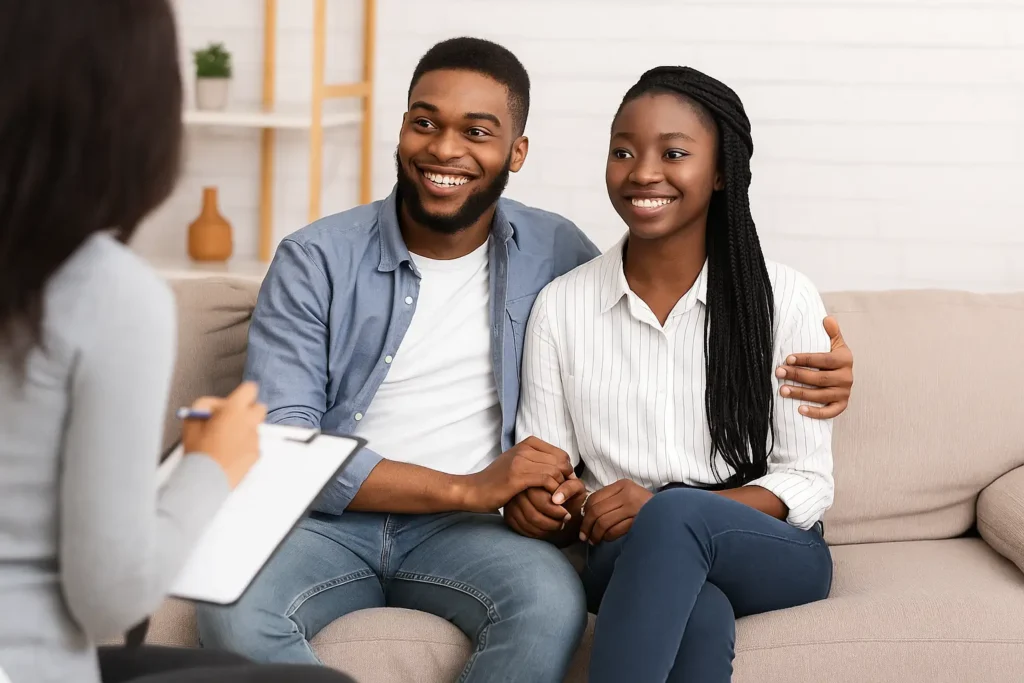Feeling stuck in your marriage or partnership can weigh heavily. You might try everything you know, talking, listening, making changes, yet still find yourselves circling the same old issues. It is a deeply human experience to reach a point where you know you need outside support, someone who can see things from a different perspective and guide you both forward. Seeking that help takes genuine courage, and wanting a counsellor who truly understands the unique shape of your relationship is a valid need.
Marriage counselling, also known as couples therapy, offers a structured way to address challenges and build stronger connections. It is not just for relationships in crisis. Many couples seek counselling to improve communication, navigate transitions, deepen intimacy, or strengthen their bond before or during significant life events like having children or relocating. Finding the right professional can feel daunting, but knowing where to look and what to consider makes the process much clearer.
What marriage counseling actually offers
Marriage counselling isn’t just for couples in crisis. Many seek it as a way to reconnect, improve communication, or manage long-standing stressors. Others use it to explore separation with support. The core goal is to create space for both partners to feel seen and heard.
In sessions, you’ll focus on shared goals, individual experiences, and how those interact. You might learn how to notice your patterns, interrupt harmful cycles, or build tools that support healthier connection.
Counselling isn’t about picking sides. A trained therapist holds the relationship as the client, not one partner or the other. That neutrality matters, especially when things feel raw or unresolved.
Common reasons couples seek therapy
Marriage counselling can be helpful for a range of issues, including:
- Arguments that never seem to resolve
- Emotional disconnection
- Lack of intimacy or sexual difficulties
- Parenting disagreements
- Financial tension
- Infidelity or betrayal
- Life changes (e.g., relocation, new baby, grief)
- Loss of shared goals or vision
But many couples don’t come with a single “problem.” Sometimes it’s just the sense that you’ve lost your rhythm. Or that you’re both putting in effort, but still feeling unseen.
Where to Begin Your “Marriage Counselling Near Me” Search
Finding a marriage counsellor starts with knowing your options for searching:
Reaching Out to Trusted Sources
- Personal Referrals: Talk to friends or family members you trust who have had positive experiences with couples therapy. Their insights can be incredibly valuable.
- Healthcare Providers: Your primary care doctor or an individual therapist you see may be excellent resources for recommending local marriage counsellors. They often have connections within the mental health community and may understand your general needs.
Using Professional Tools
- Online Directories: Websites from professional organizations can help you locate licensed therapists. Other mental health directories can also filter by specialty, location, and insurance.
- Insurance Company: Contact your health insurance provider. They can give you a list of in-network marriage counsellors in your area, which is important for managing costs. Many insurance plans list marriage and family therapists.
- Local Clinics: Community mental health centers or large therapy practices in your city may offer couples counselling services. Reaching out to them directly can sometimes lead to a referral or an opening.
Considering Online Options
- Online therapy platforms have expanded access to mental health support, including marriage counselling. These platforms allow you to search for licensed therapists who specialize in couples work, regardless of their physical location, potentially offering a wider range of potential matches for your specific needs and preferences.
Choosing a therapist who fits your needs
Finding the right marriage counsellor involves more than checking availability. You’re looking for someone who understands your relationship’s shape, context, and values. That might mean:
- A therapist with experience in intercultural or interfaith relationships
- A provider who is trauma-informed
- A professional who respects non-traditional roles or dynamics
If identity alignment matters to you, ask directly. A good therapist won’t be offended. They’ll welcome the chance to talk about how their approach meets your needs.
You might also ask about their methods. Popular approaches to marriage counseling include:
- Emotionally Focused Therapy (EFT): Focuses on building secure attachment and emotional responsiveness.
- The Gottman Method: Based on decades of research, it helps couples build intimacy while managing conflict.
- Narrative Therapy: Helps couples understand the stories they tell about each other and rewrite them in more constructive ways.
- Solution-Focused Therapy: Prioritises current goals and small, achievable changes.
What to expect in your first sessions
The first few sessions are often exploratory. Your therapist will likely ask about:
- What brings you to therapy now
- The history of your relationship
- What you each hope to get out of the process
Some therapists speak to each partner separately for a session before meeting together. Others meet with you as a couple right away.
It’s normal to feel nervous or unsure. A good therapist knows how to hold that and make space for both people to settle in. If something feels off after the first couple of sessions, it’s okay to talk about it or try someone else. Fit is everything.
Practical considerations
Cost
Rates vary widely depending on location and qualifications. Marriage counselling might range from R600 to R1500 per session in South Africa. Some therapists offer sliding scales or package rates for longer-term work.
Medical aid coverage is less common for couples therapy than individual sessions, but it’s worth checking with your provider.
Format
Marriage counselling can happen in person or online. Online options may suit couples with busy schedules or those living in different locations. Many couples report strong outcomes from virtual therapy, especially when sessions feel consistent and focused.
Frequency
Most couples start with weekly sessions. Over time, this might shift to fortnightly or monthly check-ins. The length of therapy depends on your goals and what surfaces during the process.
Making Therapy Work For You
Finding the right marriage counsellor is a vital first step, and therapy is an active process that requires commitment from both partners.
- Engage Fully: Be open and honest during sessions. Share your perspective and listen actively to your partner and the counselor. Bring up concerns or topics you want to address.
- Apply What You Learn: Therapy often involves discussing patterns and learning new communication or interaction skills. Commit to trying these outside of sessions.
- Be Patient: Change takes time. Your relationship patterns developed over the years, and shifting them requires ongoing effort and practice. There may be challenging moments in therapy, which are often part of the process
Does seeking therapy mean the relationship is over?
No. It means you’re willing to look at it closely.
Some couples use therapy to rebuild. Others find clarity that leads them to part ways. Either outcome can be healthy—if it’s based on honest reflection, not just exhaustion or avoidance.
The aim of therapy is not to force reconciliation or make decisions for you. It’s to offer space, tools, and perspective so that you can choose with clarity.
Final thoughts
Finding marriage counselling near you is not just about logistics. It’s about finding a place where both of you can explore your relationship without fear or judgment.
Look for a therapist who sees the whole picture—your values, your identity, your goals. Ask the questions that matter to you. Take the time to find someone who feels right.
Marriage counselling works best when it feels like a partnership with your therapist and with each other.
Addressing Common Questions
Many couples have similar questions when considering marriage counselling.
Is couples therapy effective?
Research indicates that couples therapy can be very effective in improving relationship satisfaction and addressing specific issues. It provides a structured environment to learn new skills and understand underlying dynamics. Many couples report significant positive changes.
How long does marriage counselling usually last?
The duration varies greatly depending on the couple’s goals and the complexity of the issues. Some couples benefit from short-term counselling (a few months), while others engage in therapy for a year or longer. The counsellor will discuss a potential timeline with you based on your needs.
What is the difference between marriage counselling and couples counseling?
The terms are often used interchangeably. Generally, both involve licensed professionals working with partners in a committed relationship to address challenges and improve the relationship’s health. “Marriage counselling” specifically relates to married couples, while “couples counseling” can apply to any committed partnership, married or not.
What if one partner is hesitant?
It is common for one partner to be less enthusiastic than the other about starting counseling. Openly discussing the reasons for hesitation and agreeing to even a few initial sessions to see how it feels can be a good starting point. Many counselors are experienced in working with hesitant partners.

